Published May 17, 2023
Trekking Toward Tolerance
'Every human soul on Earth wants to be celebrated, not tolerated.'

StarTrek.com
Human infants have just two instinctive fears at birth — the fear of falling, and the fear of loud noises. Every other fear is learned as we begin to experience what it’s like to be a separate entity in a world of endless variety.
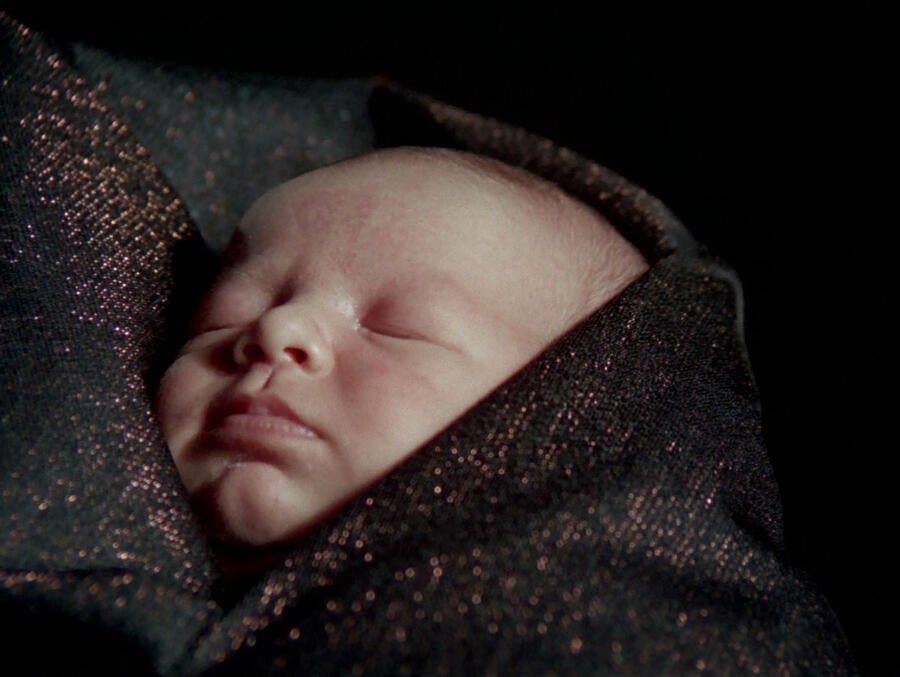
StarTrek.com
By the time we grow, from infancy to daring school-bound dynamos, we’re cautioned thousands of times. Don’t talk to strangers! Stay close to me or someone might hurt you! Don’t do that; you’ll get hurt! Don’t go near that/them; it’s HOT (OR they’re dangerous)!
Very early on, we adopt our caregivers’ beliefs and attitudes about ‘Earth aliens’ — the people and creatures who don’t look, communicate, or behave the way we do — at a time when we’re literally incapable of questioning the value, merit, or accuracy of their beliefs. We embrace other people’s attitudes and fears years before we’re capable of deciding for ourselves whether they’re worthy of emulating or endorsing.
Science Fiction And Other Media Mirror Our Values And Fears
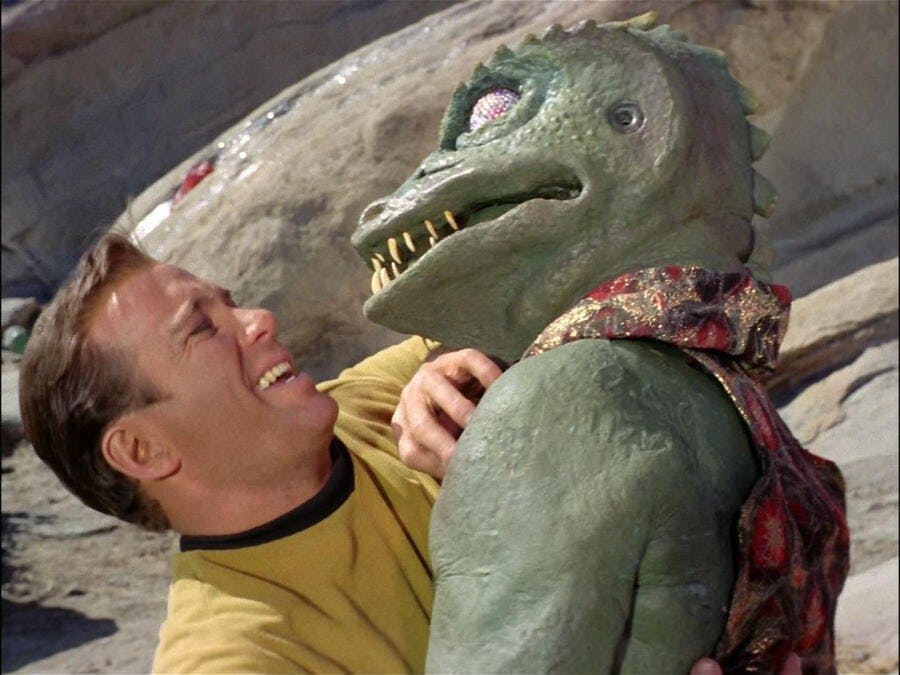
StarTrek.com
Before Gene Roddenberry’s Star Trek came along, most science fiction shows depicted monstrous alien encounters, in which only malevolent extraterrestrial species managed to make their way to Earth to wreak havoc. In these distressing adventures, our panicked, under-prepared armed forces threw everything they could at the invaders in all-out efforts to save us from rapacious, cruel alien oppressors.
Today, we still frequently see this kind of entertainment because being put on the collective edge of our seats sells tickets and because it underscores America’s culturally-prescribed need to be sufficiently prepared to fight alien “others” who do not think, live, and act the way we believe they should.
Roddenberry sought to change American society’s default narrative about aliens, terrestrial and extraterrestrial. He wanted his viewers to explore the strange new worlds around and beyond us, to seek out new life and new civilizations with a sense of adventure and exhilaration rather than with trepidation and fear. Of course, to advance a watchable episode, there had to be obstacles to overcome and adversaries to encounter along the way. Roddenberry wanted us to examine what we’ve learned as a society and ask ourselves if it is helping or hurting the likelihood that we’ll ever embrace, as a species, the Vulcan (and Roddenberry’s own) concept of IDIC (the celebration of Infinite Diversity in Infinite Combinations).
Star Trek' Antagonists Are Frequently Benign And, At First, Misunderstood
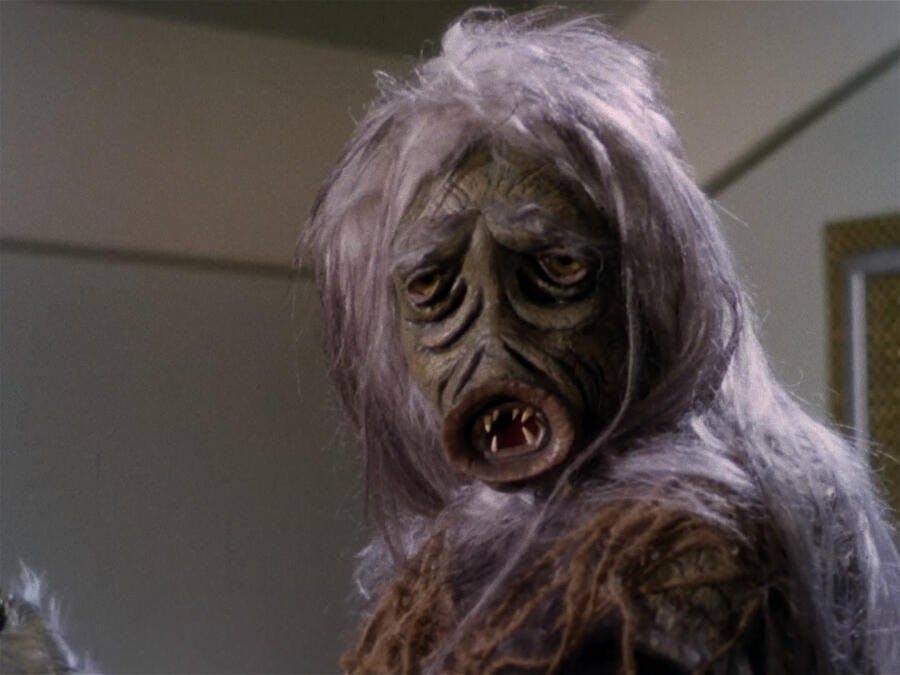
StarTrek.com
The first episode, “The Man Trap,” featured a desperate salt-dependent, shape-shifting creature — the last of its kind — and a scientist who was equally committed to making sure it survived. Their common goal was to get a sufficient supply of salt tablets from Captain Kirk and company to keep them alive in a dry desert climate where the loss of body salt through perspiration demanded a constant supply of the scarce mineral.
It was desperation that caused the creature to entice, subdue, and extract from its human victims the salt in their bodies that it needed to survive; unfortunately, the creature’s actions resulted in the deaths of unwilling, unwitting donors. Dr. McCoy’s reaction before killing the creature touched everyone who witnessed it. He knew what he had to do, but he begged forgiveness even as he pulled the trigger. (Today’s environmental activists stand between the endangered and the entities endangering them, asking them to put away their guns, poisons, and bulldozers before it’s too late for countless species whose continued existence — including our own — grows less certain by the hour.)
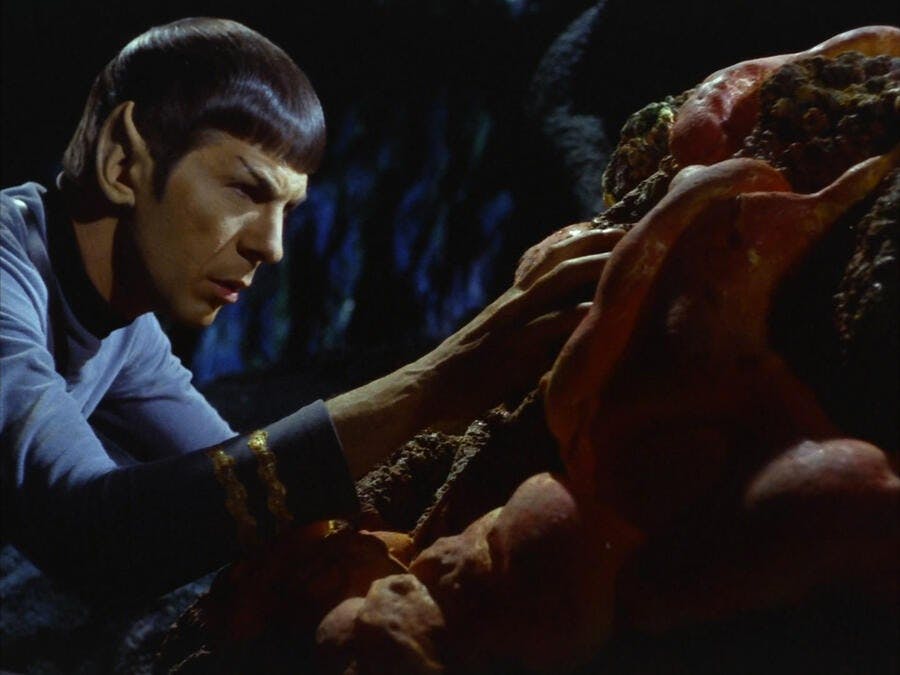
StarTrek.com
Another episode, “The Devil in the Dark,” began with an urgent briefing in a mining colony where workers were being attacked and dissolved by an acid-producing “monster” whose sole motivation was keeping her offspring (which were incubating in silicone “eggs”) safe from the miners’ marauding ways.
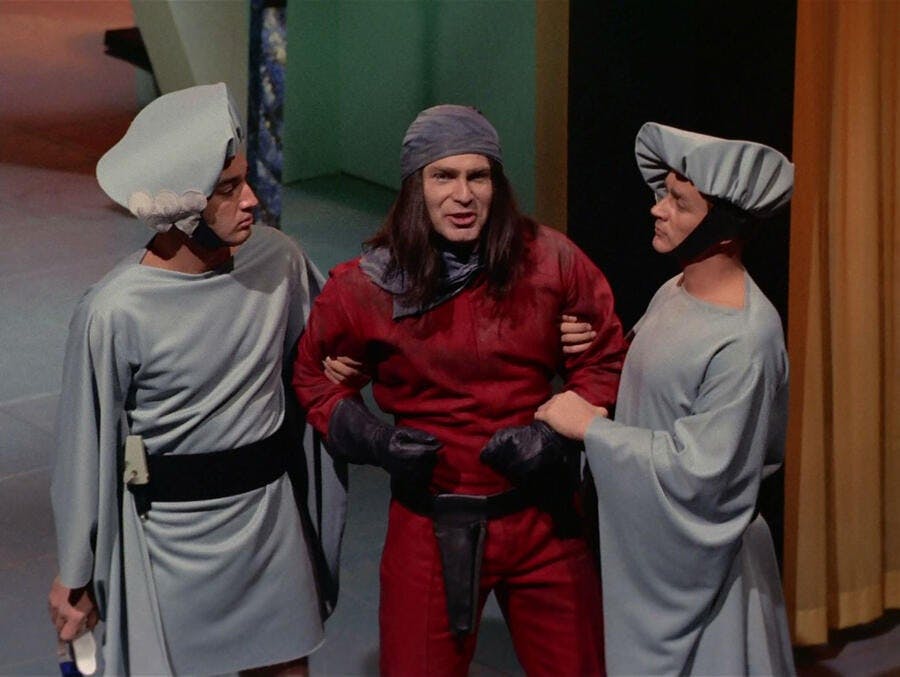
StarTrek.com
The episode “The Cloud Minders” explored the inequality inherent in deeming other members of the same species exploitable, expendable laborers whose lives are valuable to those in power only as worker bees and producers of leisure, luxury and practical goods, and services at heavy expense to themselves. The workers were sickened, poisoned, and cruelly exploited by the conditions under which they were forced to work and live.
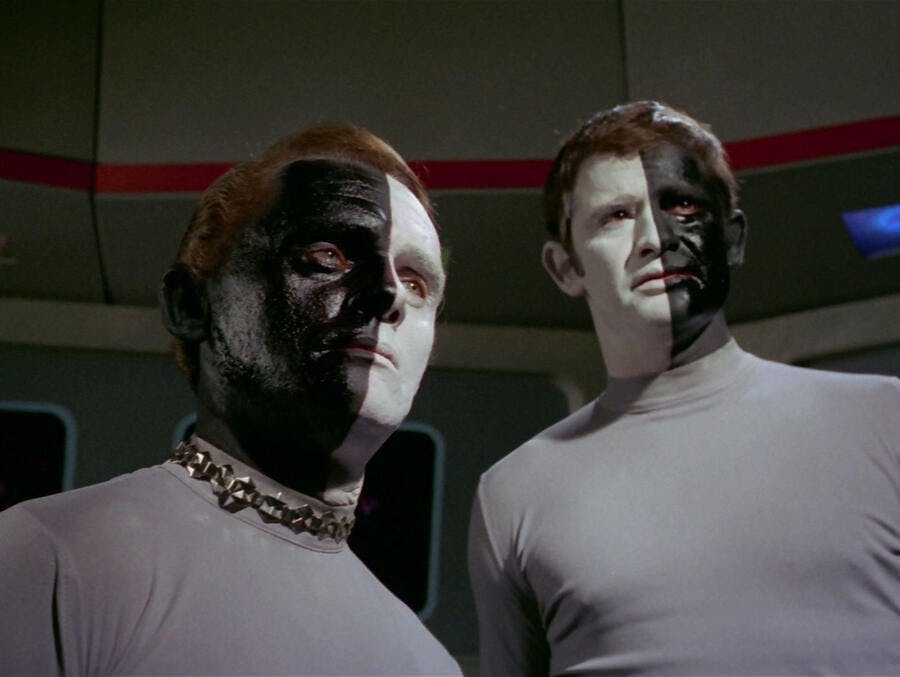
StarTrek.com
And the episode “ Let That Be Your Last Battlefield” explored racial bigotry and the subsequent slavery and animosity on both sides that evolved from it.
Sidestepping the Censors to Serve the Greater Good
Back in the 1960s, Roddenberry knew he couldn’t get studio censors to allow controversial topics on the air unless they took place on other worlds. He knew that only a science fiction series could critically explore parochial perspectives and survive.
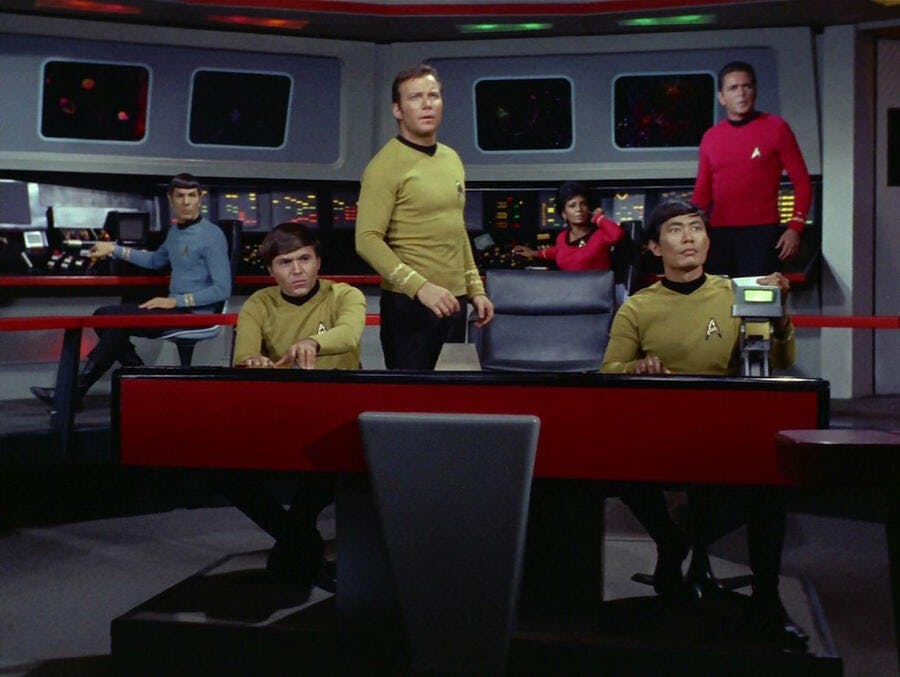
StarTrek.com
In fact, Roddenberry faced an uphill battle just getting the network to allow him to have a devilish-looking, pointy-eared Vulcan (an actual alien) as Kirk’s second-in-command. Roddenberry initially wanted a woman as second-in-command, but was denied. Another battle was keeping Lt. Uhura, a Black woman professional, on the Bridge of the Enterprise along with a rainbow of international representatives — Mr. Sulu, a Japanese-American (just a generation after World War II ended; a war that pitted Americans against the Japanese in the Pacific and the Third Reich across Europe), and later Pavel Chekov, a proud, pontificating Russian (during the Cold War), so he was fashioned after Davy Jones of The Monkees, the spoonful of sugar that helped the medicine go down.
Roddenberry’s message seemed clear — enemies can become allies, old injuries can be healed, and peace can reign wherever and whenever people of goodwill decide to make it so. What it takes, from each subsequent generation, is a careful analysis and re-examination of the beliefs and attitudes that we adopted as eager, young sponges from the people and media around us before we knew how to decide for ourselves — the ultimate survivability of the viewpoints espoused by us vs. them ideologies.
The Final Frontier
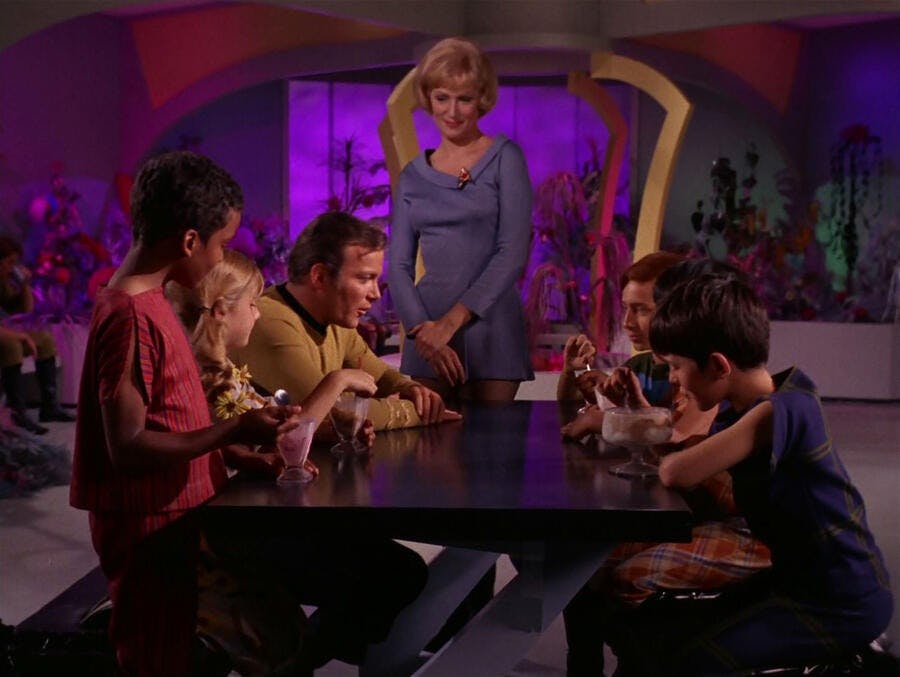
StarTrek.com
Was Gene Roddenberry’s vision of humankind in the 1960s utopian, or was it (and is it still) just ahead of its time?
Every human soul on earth wants to be celebrated, not tolerated. It is when unfair advantage reigns that things get ugly, people get riled up, and the stuff hits the fan.
Again, human infants have just two instinctive fears at birth — the fear of falling, and the fear of loud noises. Every other fear is learned.
Gene Roddenberry embraced IDIC.
This article was originally published on August 13, 2018.





